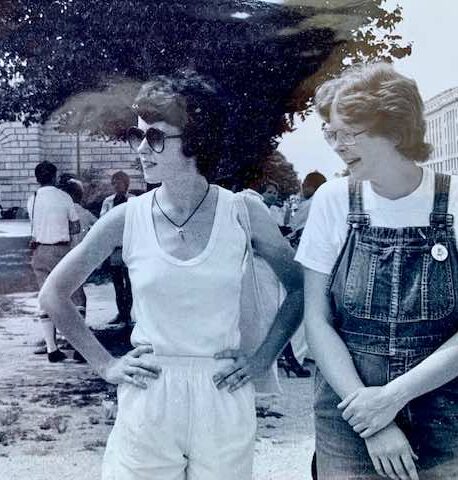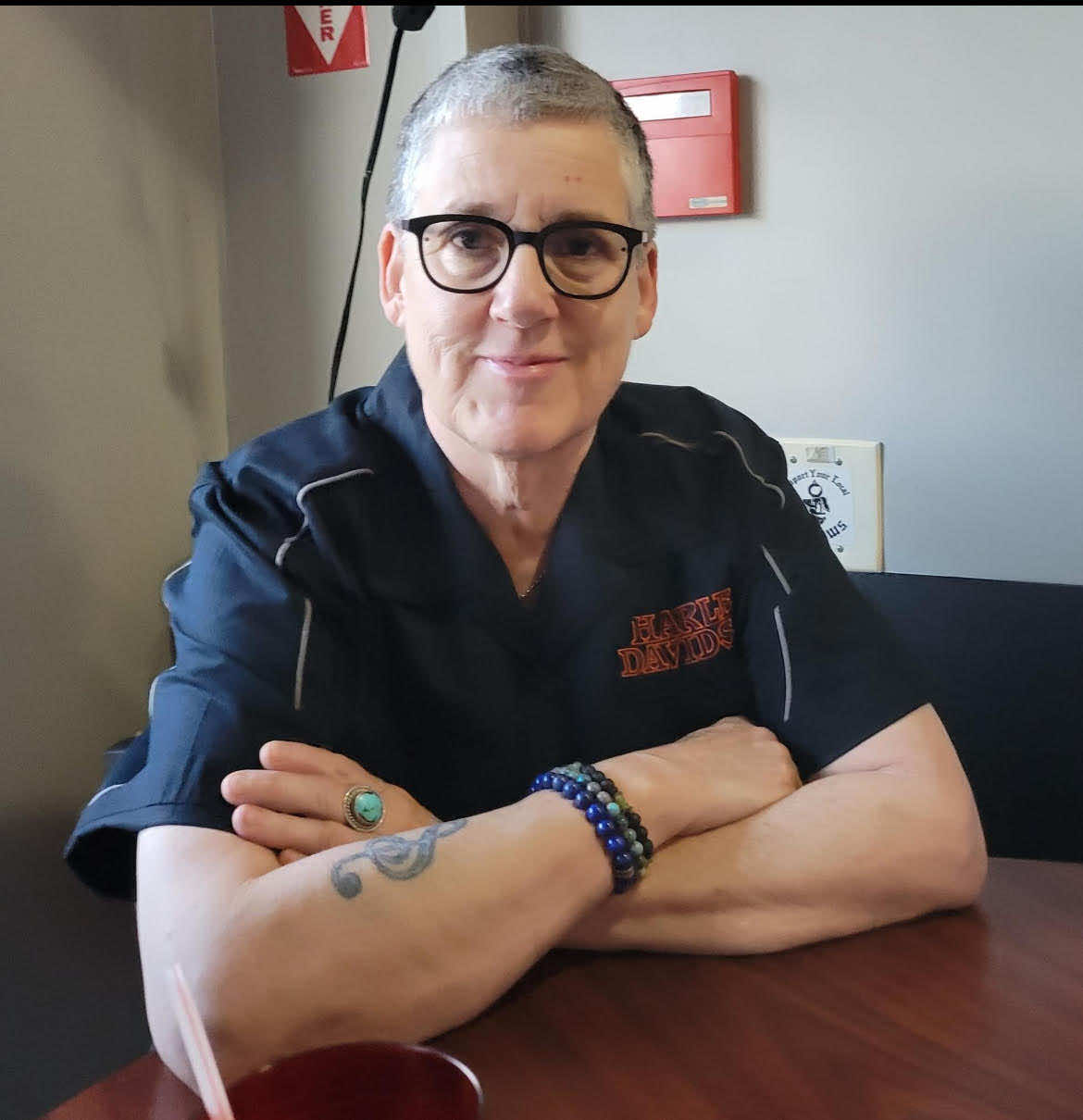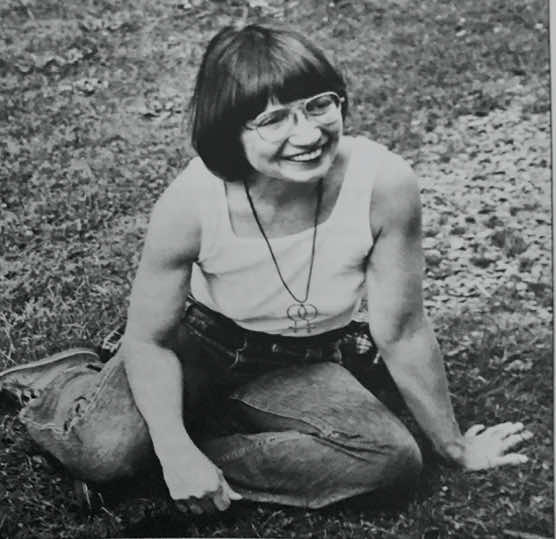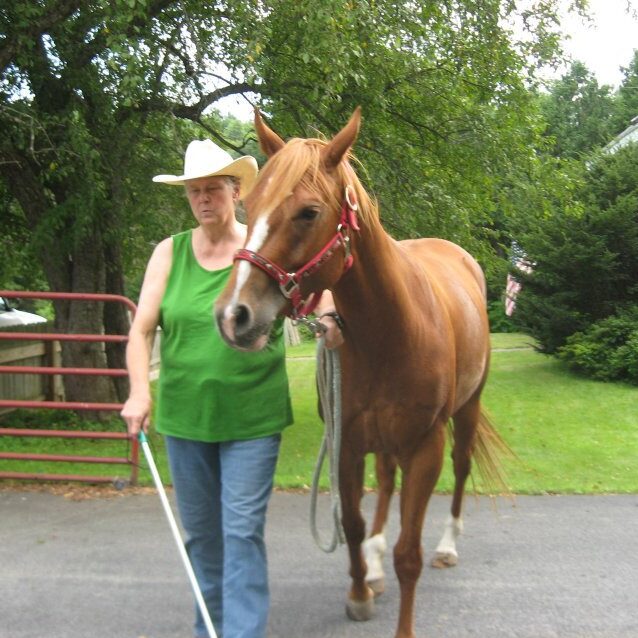Theresa Barry and Labrys Books: Virginia’s First Feminist Bookstore

Theresa “Terri” Barry came out in 1976 when she was in her early twenties in college, where she met her then-partner Joan Mayfield, starting a feminist bookstore with her. From 1977 to about 1980, she and Joan ran Labrys Books in the living room of their Richmond, Virginia, home. They chose the name Labrys, after the double headed ritual axe found in ancient Minoan depictions of the Mother Goddess. The bookstore was run with the support of the Richmond Lesbian Feminists, an organization that still exists today.



